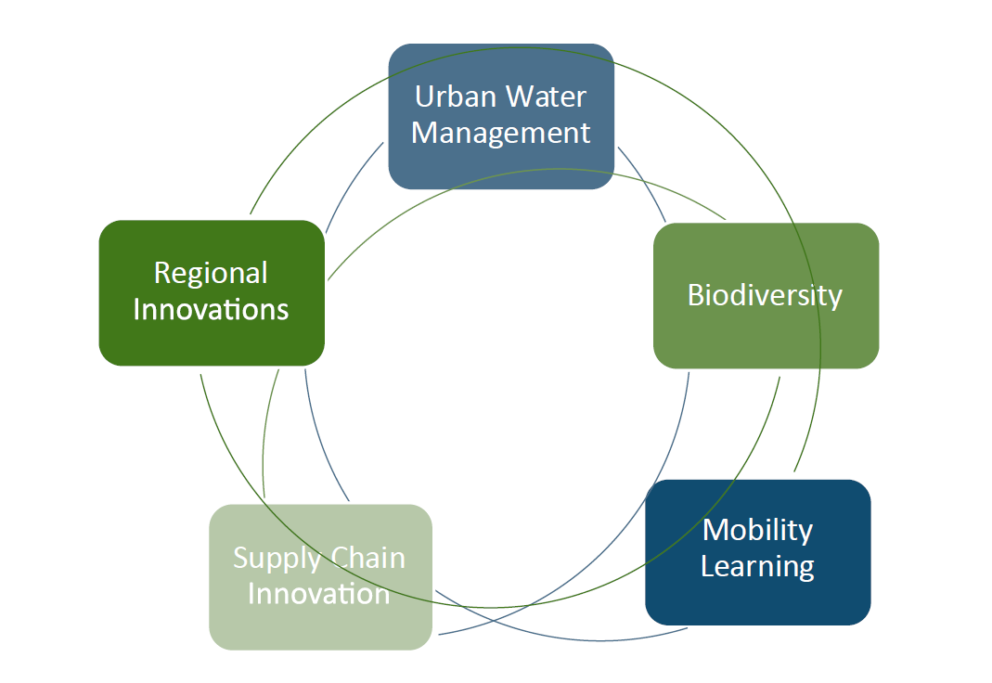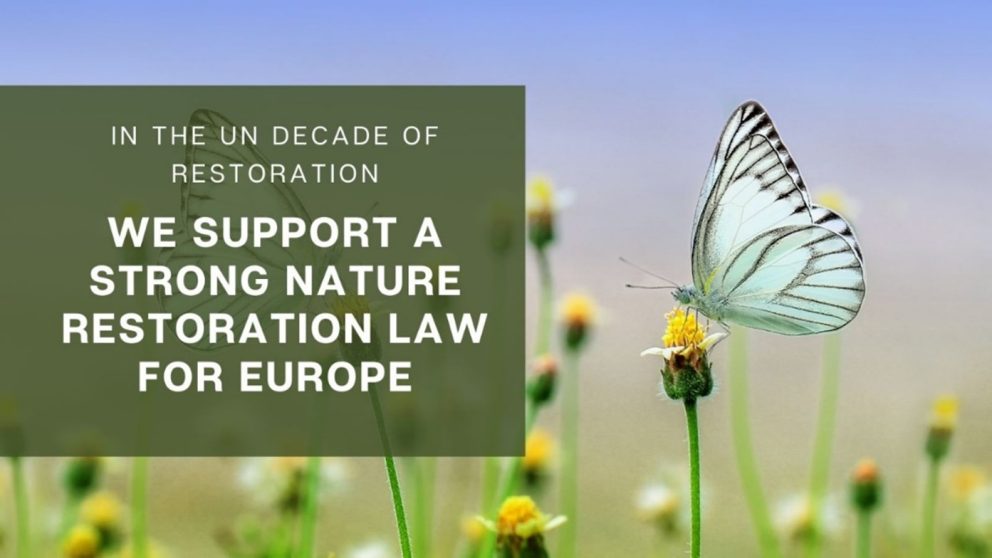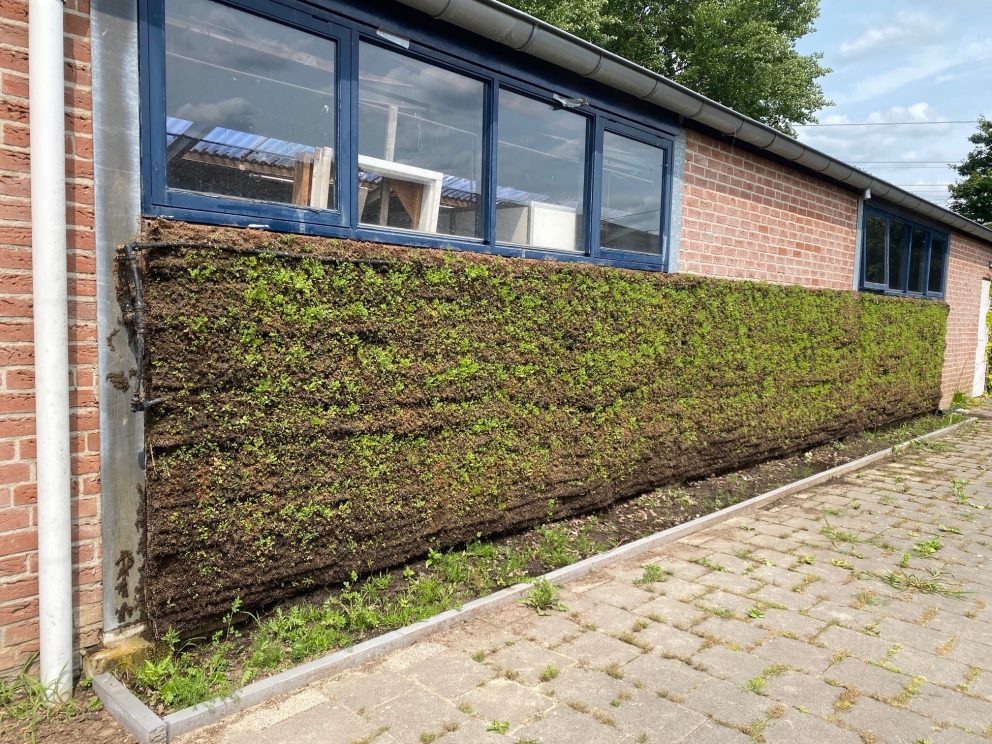The European Platform for Urban Greening has spent the last two years bringing together top industry leaders and vocational educators in the field, to make advances on the pressing issues, skills training, technologies and infrastructure solutions needed to produce sustainable green urban environments. Here are some highlights of important themes from last year's project report. Check out this summary and read the report in full at the link in the article.
While Urban Greening is typically seen as providing ‘green’ solutions, it is crucial to highlight that without water, nature-based solutions and many of the most effective green innovations that address climate adaptation, biodiversity and human well-being in the urban environment would be for naught.
Urban Greening is therefore best understood to provide integrated blue-green solutions for the challenges we face. There is no green without blue. By understanding the importance of blue for green, we can in turn look to other areas that are interlinked and dependent upon one another to support a faster paradigm shift when it comes to the sustainability of our cities and the field of Urban Greening itself.
Over the past year, five interlinked areas were articulated that largely reflect the activities of
the Platform and each region’s advances: urban water management, biodiversity, supply chain innovation, mobility learning and regional innovations. These key areas of focus will propel the aims of the European Platform forward and help us achieve the greatest possible impact in the years ahead.
Urban Water Management
Water is essential to supporting Urban Greening practices and the way we manage it matters. With its growing scarcity as a resource due to climate change, three shared issues have been flagged by our industry partners in our platform: water drainage, water collection and storage, and water re(use). While there are regional innovations in Sustainable Urban Drainage Systems (SUDS) that begin to address these issues, over the next year the Platform intends to use our collective expertise to tackle these three areas directly and elevate approaches Urban Water Management across the blue-green supply chain.
Biodiversity
Biodiversity and nature-based solutions are two aspects of Urban Greening that are dependent on water management. Our ability to support biodiverse ecosystems and blue-green innovations that supply oxygen and clean air to urban environments, produce thriving wildlife that contribute to the pollination of plants and pest control, and create healthy soil conditions for growing our food, are just a few elements that lead to sustainable urban environments. As in nature, everything is connected and this is how we must re-frame our approach to urban development.
Supply Chain Innovation
Engaging new stakeholders who often see themselves as outside the field of Urban Greening, for example construction companies, vocational experts and suppliers, or policy makers, can go a long way in boosting the skills ecosystem and supply chain innovations. By drawing together wide-ranging expertise, transferring knowledge and developing new skills training qualifications, professionals involved in the greater supply chain will be better able to see their role in contributing to blue-green solutions.
Mobility Learning
The best method for transferring knowledge is often through hands-on, in-person experiences. While theory and classroom based learning is important, blended learning models that involved seeing and participating in projects first-hand are often most effective. If we want to create impact and inspire change, the mobility of stakeholders to study best practices and lessons learned from other Platform partners will be fundamental to building momentum for Urban Greening across Europe.
Regional Innovations
Championing regional innovations and best practices in Urban Greening on a European-wide level is one of the most important ways to accelerate the adoption and implementation of the latest blue-green solutions. The opportunity to change legislation and shift public opinion comes from presenting the proof of concept for sustainable alternatives and sharing our knowledge at scale.
In fact, over the past two years policy has been influenced in countries including Romania and Spain by policymakers who have been directly briefed and inspired by the progress of the European Platform for Urban Greening and its partners.







